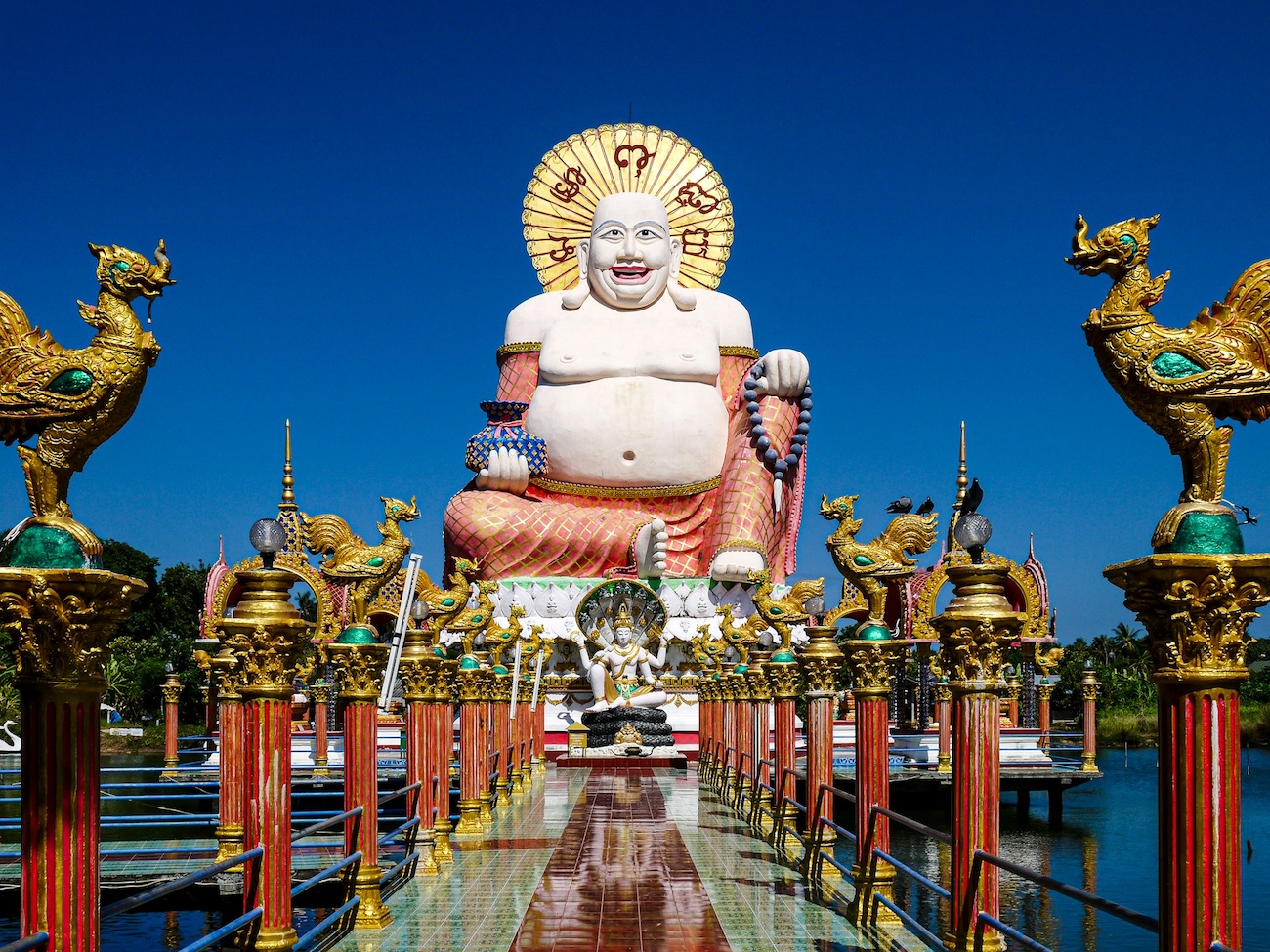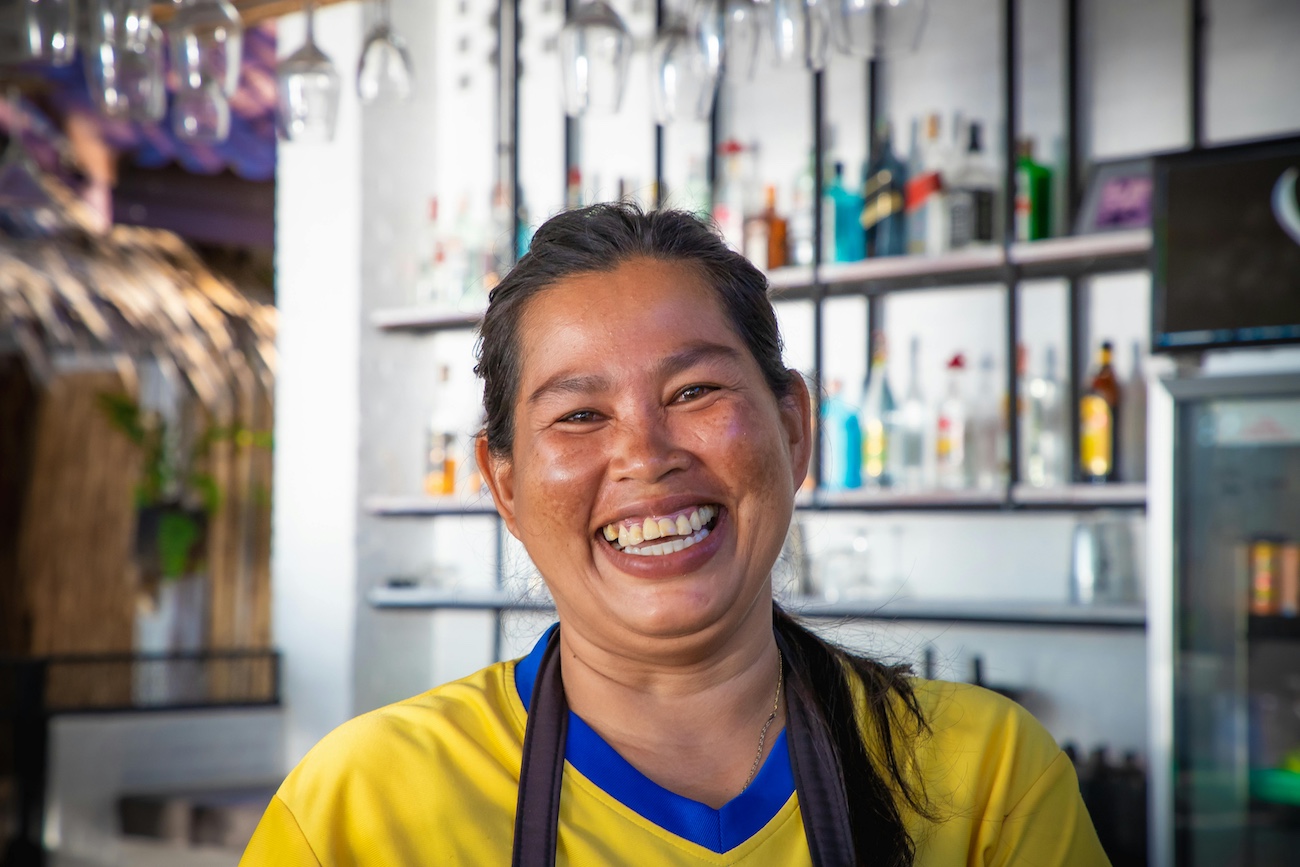Understanding Thai etiquette is a way of gaining an insight into the real Thailand as part of their travel experience. The unique qualities of Thailand and the warmth of the Thai people have made more than one first-time visitor fall head-over-heels. However, to get to know Thailand and feel more relaxed during your getaway it’s worth being aware of some real Thai etiquette.
What many guests should remember about Thai etiquette is that the rules are so nuanced and multi-layered, with roots that run deep into Thai culture, heritage, and the hearts and minds of the Thai people. This rich cultural texture adds a strong sense of tradition and decorum to the mindset of Thais, a Buddhist-inspired sense of purpose and place that can seem at odds with the friendly spirit of fun and laid-back vibe of the Thai people.
Related article: 9 Reasons to Love Thailand
Basic Guidelines on Thai Customs and Etiquette
 Thais have their own unique culture and follow their customs, but keep in mind that if there are rules in place, you’re expected to stick to them and to ignore protocol can be seen as grossly arrogant. This applies to many places where protocol must be followed, such as temples, but in general the basic guideline is to follow the rules… when there are rules.
Thais have their own unique culture and follow their customs, but keep in mind that if there are rules in place, you’re expected to stick to them and to ignore protocol can be seen as grossly arrogant. This applies to many places where protocol must be followed, such as temples, but in general the basic guideline is to follow the rules… when there are rules.
1. Respect Thai Beliefs
Whatever your spiritual beliefs, it’s essential to respect not only Buddhism in Thailand but also the genuine sense of superstition that surrounds Thai culture and tradition. You may not relate to the Thai love of lucky numbers, auspicious days and appeasing spirits with bright-red sodas at roadside shrines, but mocking or questioning these ideas too closely could offend them dearly.
2. Learn The Art of The Wai
The classic Thai greeting of palms touching in a prayer-like gesture and a nod of the head or a slight bow involves an intricate set of rules that can be difficult for any non-Thai to master. The good news is that you’re not expected to get it right. However, it is considered very impolite if you do not return a wai.
As a rule-of-thumb, do not wai to people in a service capacity but do wai to show respect and to acknowledge help from others and to say hello to people you meet along the way. As well as a greeting, a wai is a way of saying goodbye too.
3. Keep Your Composure

In Thailand, showing anger can have a deeper meaning. Reacting angrily only means you have lost respect for yourself and will lose respect from others. This idea of not wanting to offend or negatively affect the happiness of others is known as kreng jai and is at the heart of Thai life philosophy that creating an atmosphere where people feel at ease is more important than being “right” or saying what you really think. It is important to respect and return this strong cultural ideal.
4. Be Careful About Touching Other People’s Heads
Often it is the small, nuanced gestures that can have a great impact culturally and in Thailand, a real no-no is to make sure you don’t touch somebody’s head as this is a disrespectful gesture. Of course, in many countries, it would not be socially acceptable to touch the head of a stranger and not necessarily what you would do anyway, but it’s worth understanding how deeply inappropriate it is regarded in Thailand.
5. Don’t Point Your Feet at Other People Either
Pointing your feet at other people or a Buddha statue is also to be avoided, and Thai culture dictates that you should always make sure your feet are not higher than someone else’s head as this too is a sign of disrespect. As with the Balinese people, Thais consider the feet as the least-clean part of the body.
Related reading: Top 5 Best Spas on Koh Samui
6. Take Off Your Shoes

Before entering into anyone’s house, it is the golden rule to take off your shoes before entering. This is seen as a sign of respect and, of course, hygiene. It’s also good to look out for small shops where you’re expected to do this too, and other places where you leave your shoes at the door are before you enter temple buildings and also at the spa. Make sure your feet are clean, look good and that you wear shoes that can be easily put on and taken off again.
7. Dress Modestly on Temple Visits
Spending time soaking up the atmosphere at splendid temples is one of the highlights of any trip to Thailand. However, while you may be spending days in T-shirts, shorts, and flip-flops, make sure you pack temple attire. Long trousers and skirts, as well as long-sleeved tops, are required. Open heel and open toe shoes are not generally suitable either, although sandals with a strap around the back are usually acceptable.
Some temples offer visitors sarongs or pants to put over their clothes if they turn up without the right gear, but not always, so dress appropriately anyway.
8. Don’t Take Anything Personally
What might be considered personal comments in your opinion are often a way in which Thais are simply being friendly. Exclamations about your appearance, size, and other body features are not intended to be rude, as are intimate questions about your personal life and finances. While they can take some getting used to, the best approach is to laugh along and politely change the subject. Don’t balk too much; if you take offense, they too will take offense as well.
9. Don’t Forget To Smile
 The “Land of a Thousand Smiles” is not named just because the people are friendly, which they are. In everyday Thai culture, a smile is a way of showing respect, ensuring another person feels comfortable. It can even resolve issues and avoid any conflict and potential loss of face. A smile will get you far on your journey in Thailand, and you’ll come out the other end smiling.
The “Land of a Thousand Smiles” is not named just because the people are friendly, which they are. In everyday Thai culture, a smile is a way of showing respect, ensuring another person feels comfortable. It can even resolve issues and avoid any conflict and potential loss of face. A smile will get you far on your journey in Thailand, and you’ll come out the other end smiling.
Related article: Taste the Culture: Experience Koh Samui Through Thai Cooking Classes
Gain A Newfound Respect for Thai Culture
The thing to remember is that, while Thais in general are friendly, they are just as human as anyone else. Thais have a keen sense of humor in general and this sense of Sanuk is viewed as an important part of normal behavior. At the same time, however, if you take things too seriously and be constantly offended, they will take offense at you as well.
Guests in The Private World’s elegant villas in Phuket and vacation rentals in Koh Samui should take note of these basic rules of Thai etiquette while dealing with the professional staff at their villa. This ensures not only the best service, but also the most eye-opening insights into Thai culture that are worth learning during their stay.
Get more cultural insights with Travel Guide Inspiration.






